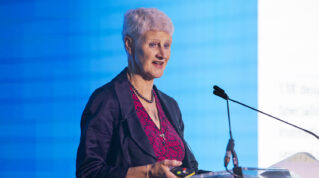SEND is at the top of many agendas – including that of the education select committee which is conducting a national inquiry into how best to solve the crisis.
Its chair, Helen Hayes MP, recently said SEND was the “single biggest challenge at all points of the education system”.And we know, as respective representatives of a local authority and an education group, this is absolutely the case.
But how do you solve such a complex issue when the needs of children and young people are increasing and becoming more complex, demand for EHCPs is rising and funding is tightening in all areas?
While we don’t have all the answers, we do know that strong, innovative local collaboration has had a hugely positive impact on our own SEND delivery and provision – creating a high quality and sustainable solution for some of our most vulnerable learners.
Without extra money in the system, collaboration has become fundamental. Funding shortages can put organisations on a collision course, with significant pressure on everyone to deliver on their own commitments, often in silos.
But in truth, most local authorities and educators share the same vision; to provide every single young person with the care and education they need and deserve, supporting them to develop the skills they need to live fulfilling lives.
‘Young people didn’t need out-of-borough care‘
With something as challenging as the SEND crisis, we must focus on these shared aims and be willing to pool resources, insight and expertise.
Two years ago, we both recognised that an urgent education solution was needed for Lambeth’s 19 to 25 year olds with complex needs. The independent provider, Michael Tippett College, had been judged inadequate by Ofsted and there was a real risk that learners would be left with nowhere to go.
London South East Academies Trust (sponsored by London South East Colleges) had just been named by the Department for Education as the preferred multi-academy trust to take on its failing feeder school, Michael Tippett School, which is also in need of urgent improvement.
Together, we realised we could create an exceptional progression pathway for learners with complex needs from 11 to 25. This would not only give families peace of mind about a smooth transition (from school into FE), but these young people could remain in their community without needing out-of-borough care.
It is this local, place-based provision that was highlighted in the DfE’s 2023 SEND and AP Improvement plan.
‘The college building was not fit for purpose’
Many local authorities are reaching breaking point due to their high-needs budgets. But without local options, expensive independent schools and colleges with associated high transport costs may become their only choice.
Our journey has not been without challenges. It was clear from the outset that the existing college building was not fit for purpose.
Undertakings were required on both sides, and a commitment from the local authority was made to identify and secure a new building. While this was not straightforward, we both kept sight of our shared aim – and our learners have now moved into the new Nido Volans Lambeth Centre, in the heart of the borough.
The college’s provision is now unrecognisable, with all commissioned places maintained and set to grow further. Learners are being prepared with the skills they need. We’ve all learnt along the way, with communication, negotiation and understanding being key to our partnership.
The benefits go beyond ‘improved provision’. This collaboration has involved people from all parts of our local authority, including adult care, health and skills. Strong relationships between college leaders and the council leads for these areas have developed. Everyone has had to ‘get in the same room’, literally and metaphorically.
This has created a more holistic approach to each learner’s care and an understanding throughout both organisations that we all must be part of the solution.
This local delivery model can be replicated across sectors such as health and social care, and with employers in all industries.
Solving something as complex as the SEND crisis means looking at challenges differently and working flexibly. We know that by continuing to collaborate and innovate, we can sustain high quality SEND provision in our community.

















Your thoughts